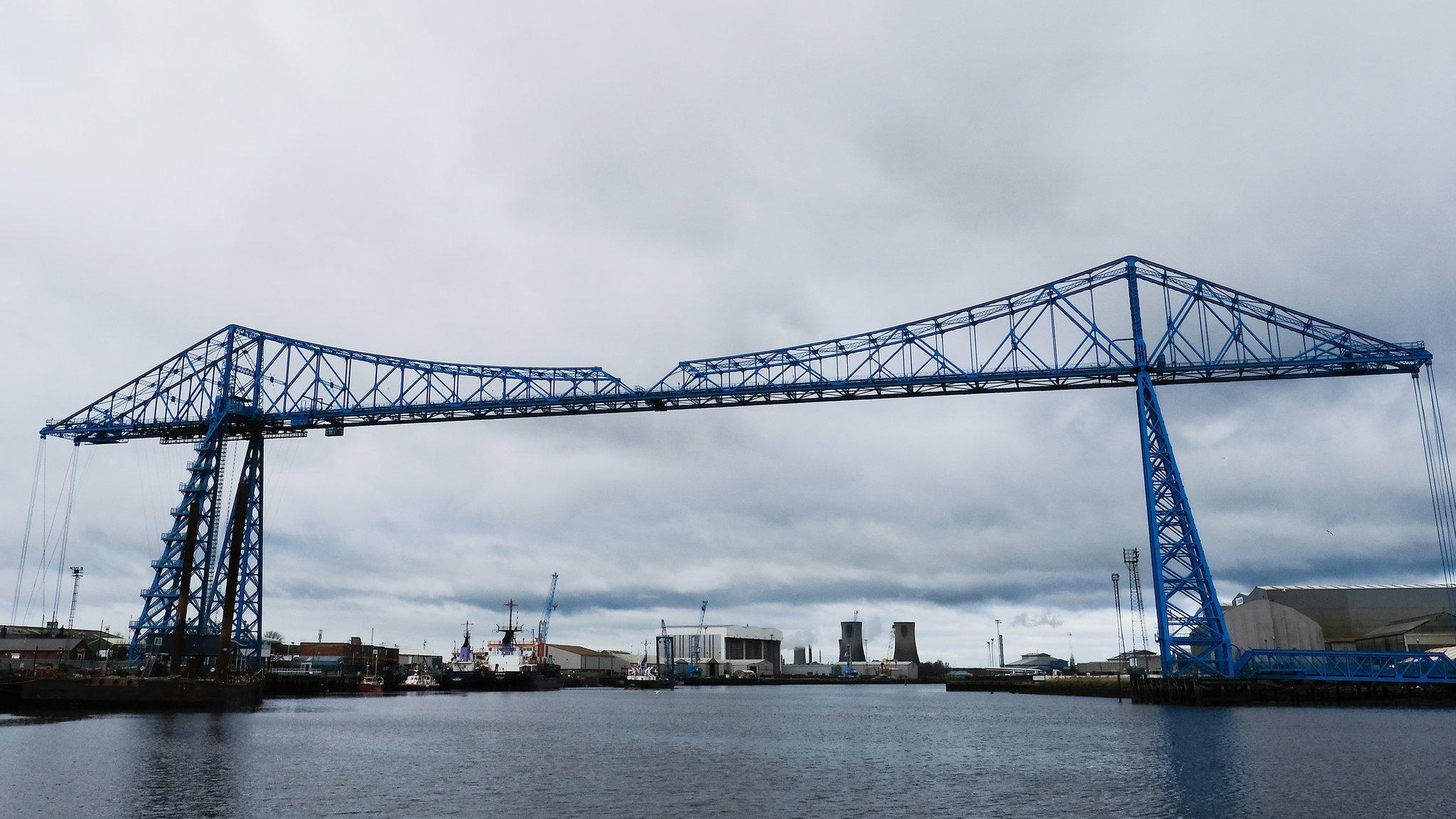Holyhead: Freeport status could create 13,000 jobs - owners
- Published
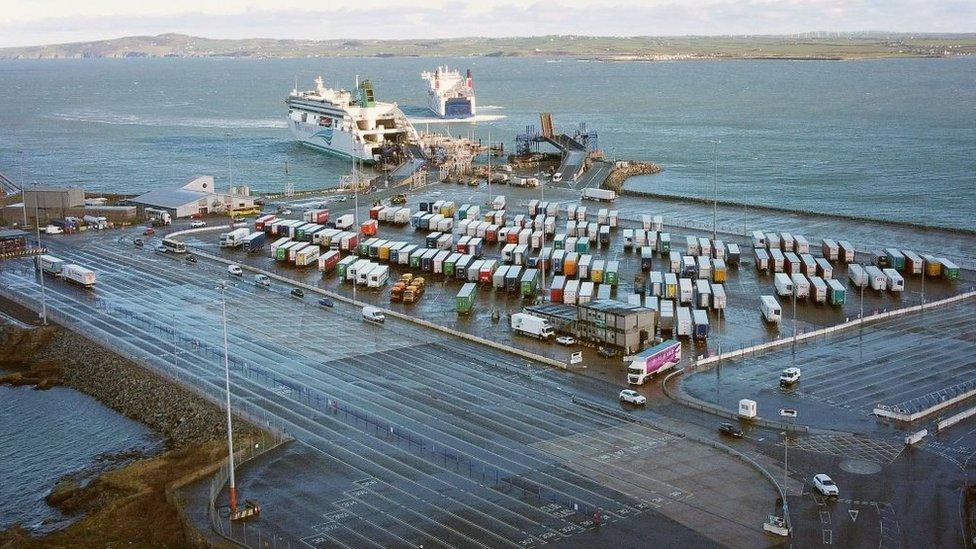
Holyhead has expressed an interest in gaining freeport status
Thousands of jobs could be created by making the port of Holyhead into a freeport, its owners have claimed.
Shipping company Stena Line said it was working with companies that were interested in building factories on Anglesey, if freeport status was granted.
Holyhead is expected to be one of five Welsh bidders for freeport status.
The UK and Welsh governments will make a joint decision on where the first one will be
Stena Line has already bought the former Anglesey Aluminium site so companies can set up factories within the freeport zone if the status is awarded.
It said it was in discussions with Rolls Royce and Bechtel, which are interested in making components for small nuclear reactors.
Ian Hampton, executive director of Stena Line Ports said: "We can bring businesses that wouldn't ordinarily come to Holyhead, they can take advantage of what a freeport brings, but also create new jobs, and create economic growth for the whole of north Wales, and for the UK."
He added that it had the potential for £1bn of growth and up to 13,000 new jobs.
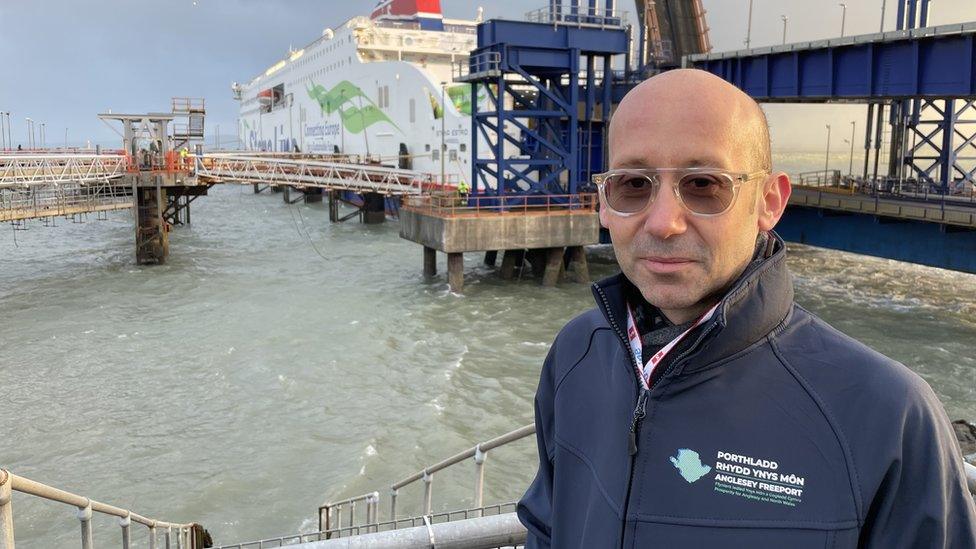
Ian Hampton said Holyhead was the second biggest port for roll-on, roll-off traffic in the UK
Stena Line also said that freeport status would simplify things for lorries which are travelling from Ireland to the EU, and just passing through the UK without stopping.
Since Brexit, some of those lorries had been taking direct ferries from Ireland to France to avoid the extra paperwork travelling through the UK requires.
Mr Hampton said: "The land bridge is still the fastest route from Ireland to Europe, but land bridge traffic is also important to keep Holyhead busy and safeguard jobs here, so we're keen to help it flow as smoothly as possible."

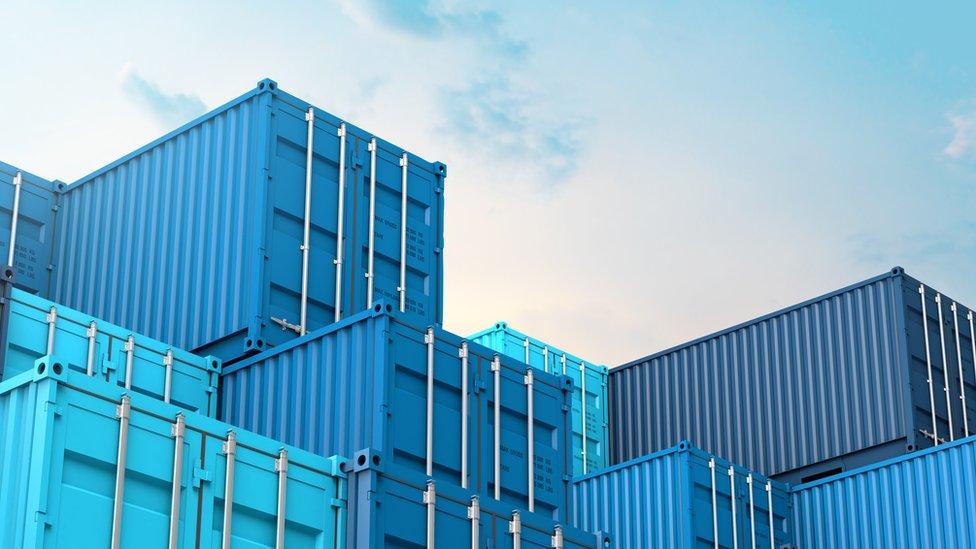
Applications for Wales' first freeport have to be submitted by 24 November
What is a freeport?
Freeport status allows firms to import and then export goods outside normal tax and customs rules.
It means factories based inside freeports can import raw material tariff-free, only paying tariffs on the finished products when they leave the site, or can re-export them overseas without paying any UK duties.
A freeport is effectively outside a country's customs borders.
In England, businesses in freeports also have cheaper business rates, but in Wales that would be up to the Welsh government.
They also pay a lower rate of national insurance for new staff.
The argument in favour of freeports is that they create new jobs and attract investment, but critics argue they do not create new jobs but simply encourage businesses to move location.

Establishing freeports was an idea from the UK government to develop the economy after Brexit, although the Office for Budget Responsibility (OBR) has questioned whether they bring new jobs and investment, or simply move them from elsewhere.
In England, eight freeport sites have already been announced, and Holyhead is not the only bid in Wales.
A partnership called Celtic Freeport is also planning to bid for Port Talbot and Milford Haven, with supporters claiming it will create jobs by helping develop the floating offshore wind farm industry.
Holyhead's bid will be a joint one with Anglesey council, which said it hoped would bring long-term prosperity and quality jobs to the island.
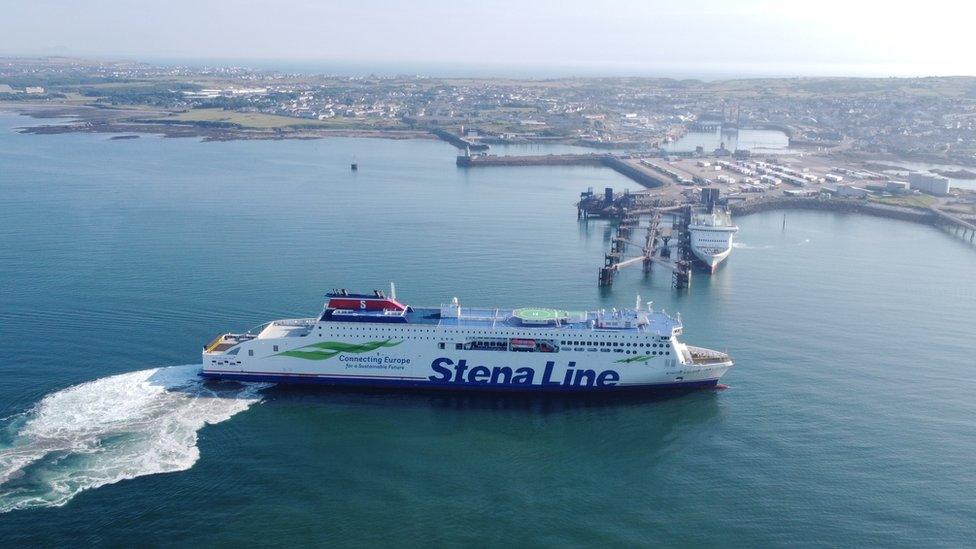
Stena Line has bought the site of the former Anglesey Aluminium works on the edge of Holyhead
Deputy council leader Carwyn Jones said: "We need to replace them, there are huge opportunities at Holyhead port and this bid has the potential to make them a reality."
He added that about 600 jobs on the island had been lost in recent years with the closure of sites such as Rehau, Marco Cable Management and the decommissioning of Wylfa nuclear power station.
Virginia Crosbie, MP for Ynys Môn, said the bid had the potential to bring investment and good quality jobs to the island, while Rhun ap Iorwerth, her counterpart in the Senedd, said the bid was compelling as well as sustainable, and "would enable us to fulfil out ambitions as an island".
A decision on Wales' freeport is expected by the spring.

YMA O HYD: Huw Stephens traces the resurrection of the iconic anthem
BUILDING THE RED WALL: Cerys Matthews meets the characters behind the Red Wall

- Published1 September 2022

- Published12 May 2022
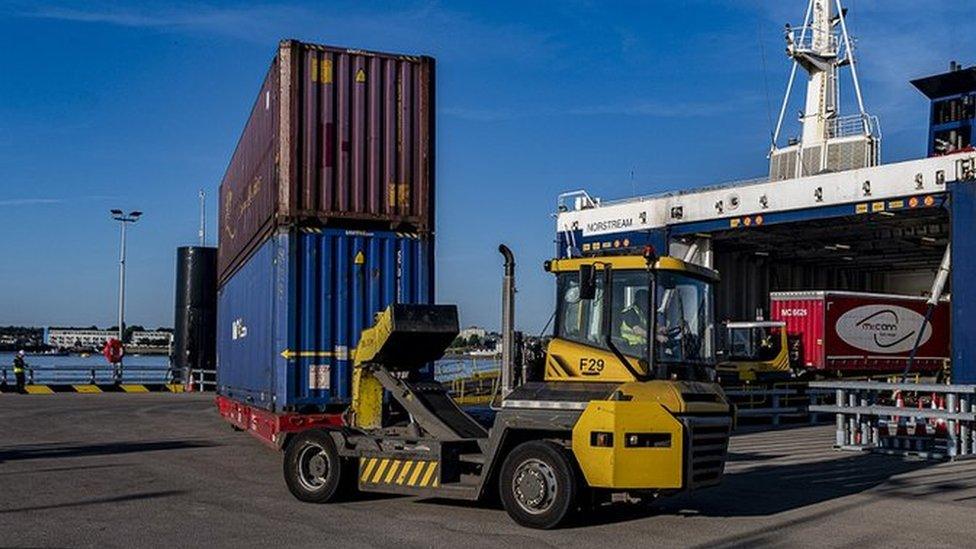
- Published22 March 2023

- Published17 June 2021
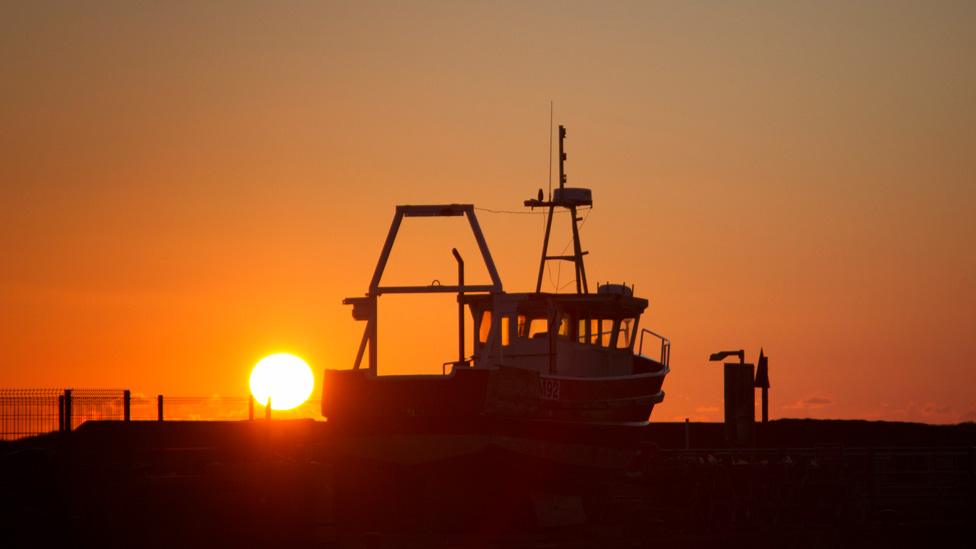
- Published19 May 2021

- Published2 August 2019
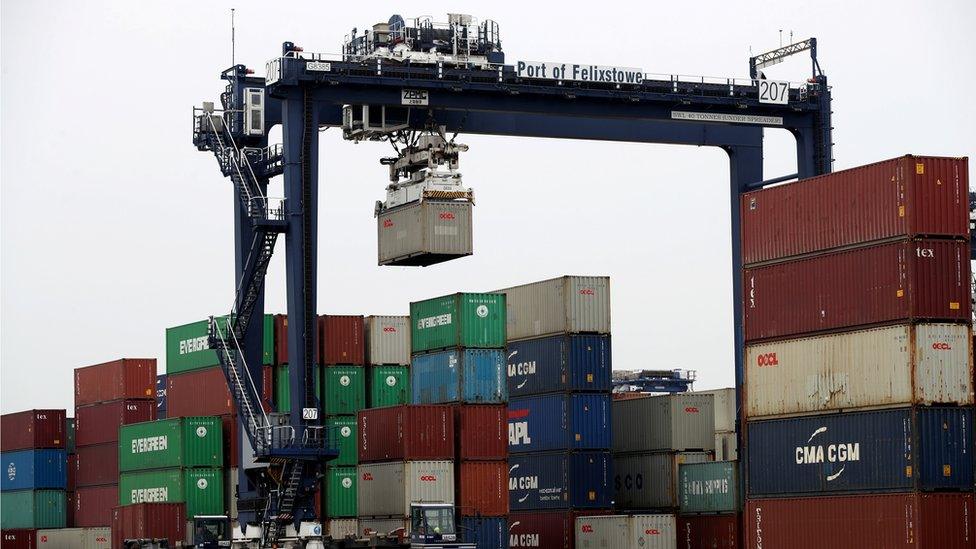
- Published29 November 2018
